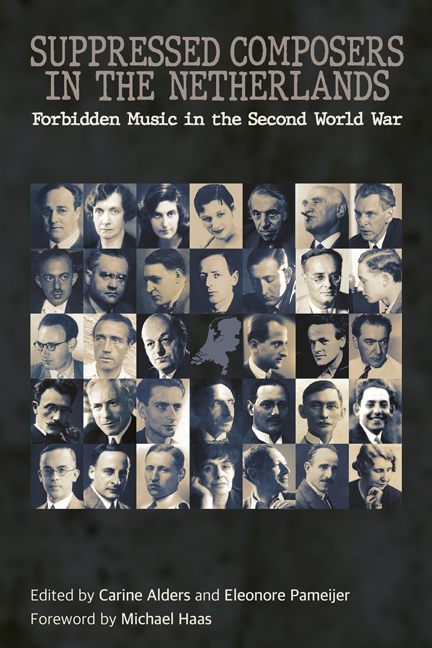33 - Ferenc/Franz Weisz
Published online by Cambridge University Press: 09 May 2024
Summary
Franz Weisz (Weisz Ferenc in Hungarian) decided to leave his home country, Hungary, because of the unstable political situation and its anti-Semitism. In the Netherlands he enjoyed two decades of personal and musical freedom before being deported to Theresienstadt and Auschwitz, where he died. Weisz was an exceptional pianist who left behind an output of several virtuoso piano pieces.
Born in Budapest on 2 August 1893, Ferenc Weisz was the third son of Ignaz Weisz and Terezia Friedman. He was a musical prodigy and by the age of eleven was a student at the Nemzeti Zenede, the National Conservatoire. He studied piano with Stephan Tomka and composition with Károly Aggházy, both former students of Liszt. In 1914, Weisz completed his education with excellent results in both disciplines.
During the First World War, Hungary fought on the Austrian side and lost. It is unknown whether Weisz took part. After the war, the political situation worsened: a split from Austria, revolution and counter-revolution, a rapid succession of rulers, first the Communist Béla Kun, followed by Miklós Horthy and increasing anti-Semitism. It is likely that Weisz gave piano lessons at this time, maybe even recitals (although Jewish musicians were increasingly barred from public performances). In 1919, he was appointed as a teacher at the Conservatoire in Budapest. He left for the Netherlands in 1920.
The family story goes that ‘during a concert tour’ in 1920, Weisz chose to stay in Amsterdam, but the reality was probably more prosaic. His fame as a pianist was not such that an international concert tour was plausible. His older brother, Simon, had preceded him to the Netherlands and his aunt, married to an Amsterdam diamond-worker, had lived there for 40 years. Amsterdam seemed to be a safe haven after the war, the Netherlands having remained neutral. Weisz was embraced by his ever-growing family in Amsterdam. ‘Uncle Ferri’ was a welcome guest in his brother Simon's home, always present when Hungarian goulash was on the menu.
As a pianist, one among several other Hungarian exiles, Ferenc quickly adapted to the Amsterdam music scene. A fellow countryman, the violinist Alfred Indig, who like Weisz had graduated from the National Conservatoire, was now a member of the Concertgebouw Orchestra.
- Type
- Chapter
- Information
- Suppressed Composers in the NetherlandsForbidden Music in the Second World War, pp. 303 - 310Publisher: Boydell & BrewerPrint publication year: 2024



